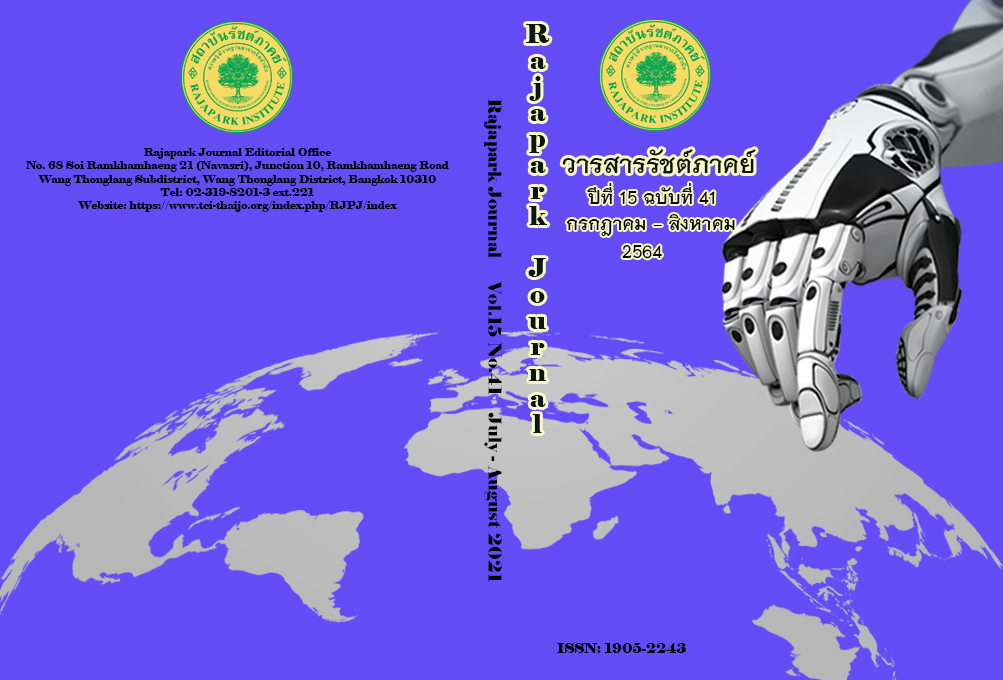English Receptive Skills of Undergraduate Students in Thai Higher Education Institutions
Main Article Content
Abstract
This study aimed to determine the proficiency of English receptive skills of the undergraduate students studying in Thai higher education institutions, and investigate the factors affecting the English receptive skills proficiency. The participants in this study were 320 undergraduates randomly sampled from different eight autonomous universities in four regions of Thailand, namely North, Northeast, Southern, and Central. The 40 students selected from each university both males and females studying in different majors were asked to take the actual English standardized test, TOEIC, and the data were, then, analyzed, and shown in Standard Deviation (S.D.), Mean, Min, and Max scores. To confirm if there are some significant differences between and within variables, the Dunnett T3 Paired Samples t-Test has been applied. The findings revealed that all variables in this study (universities, genders, years of study, and majors of study) compared both between groups and within groups of the English receptive skills, listening, reading, and both skills have significant difference. The students’ TOEIC listening mean scores were 204.41, while the reading mean scores were 138.14. Interestingly, the TOEIC total mean score was only 342.55 out of 990. Considering other variables of the students’ ethnography, the female students have achieved higher mean scores than that of male students, and the social science students have performed higher scores than that of the students from science majors while the years of study had no significant difference. To summarize, the proficiency of English receptive skills of Thai undergraduate students studying in Thai higher education institutions can be considered as the “Basic User” level following The Common European Framework of Reference (CEFR).
Article Details
Views and opinions appearing in the Journal it is the responsibility of the author of the article, and does not constitute the view and responsibility of the editorial team.
References
Binkley, M., Erstad, O., Herman, J., Raizen, S., Ripley, M., & Rumble, M. (2010). Draft White Paper 1: Defining 21st Century Skills. Melbourne: ACTS.
Bishop, J. L., & Verleger, M. A. (2013). The Flipped Classroom: A Survey of the Research. In ASEE National Conference Proceedings, Atlanta, GA.
Bolton, K. (2008). English in Asia, Asian Englishes, and the Issue of Proficiency. English Today 94, 24(2), 3-12.
Buck, G. (1991). The Testing of Listening Comprehension: An Introspective Study 1. Language Testing, 8(1), 67-91.
Buck, G. (1992). Listening Comprehension: Construct Validity and Trait Characteristics. Language Learning, 42(3), 313-357.
Dickinson, L. (1995). Autonomy and Motivation a Literature Review. System, 23(2), 165-174.
Ferris, D., & Tagg, T. (1996). Academic Oral Communication Needs of EAP Learners: What Subject‐Matter Instructors Actually Require. Tesol Quarterly, 30(1), 31-58.
Khamkhien, A. (2006). Thai and Vietnamese University Students’ Language Learning Strategies. Master’s Thesis. Chulalongkorn University.
Khamkhien, A. (2010). Teaching English Speaking and English-Speaking Tests in the Thai Context: A Reflection from Thai Perspective. English Language Teaching, 3(1).
Prapphal, K. (2003). English Proficiency of Thai Learners and Directions of English Teaching and Learning in Thailand. Journal of Studies in the English Language, 1.
Powers, D. E. (1986). Academic Demands Related to Listening Skills. Language Testing, 3(1), 1-38.
Reves, T., & Levine, A. (1988). The FL Receptive Skills: Same or Different?. System, 16(3), 327-336.
Richards, J. C. (1983). Listening comprehension: Approach, design, procedure. TESOL quarterly, 17(2), 219-240.
Sucompa, S. (1998). A Survey of Current Needs and Problems in Using Teaching English for Tourism for Higher Certificate Level Students of Rajamangala Institute of Technology (RIT). Master’s Thesis. Mahidol University.
Weligamage, S., & Siengthai, S. (2003). Employer Needs and Graduate Skills: The Gap Between Employer Expectations and Job Expectations of Sri Lankan University Graduates. In 9th International conference on Sri Lanka Studies, November 28-30, 2003, Matara, Sri Lanka.
Wiriyachitra, A. (2001). A Thai University Scenario in the Coming Decade. Thai TESOL Newsletter, 14, 4-7.
Wiriyachitra, A. (2002). English Language Teaching and Learning in Thailand in This Decade. Thai TESOL Focus, 15(1), 4-9.
Wongsuwan, S. (1992). The Analysis of the Problems Concerning Text Reading Skills of the Mathayom Suksa 6 Students in the Demonstration Schools Affiliated to the Ministry of University Affairs in Thailand. Master’s Thesis. Mahidol University.


